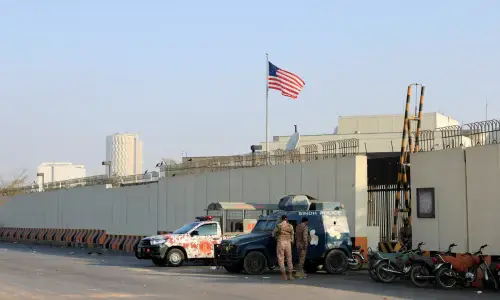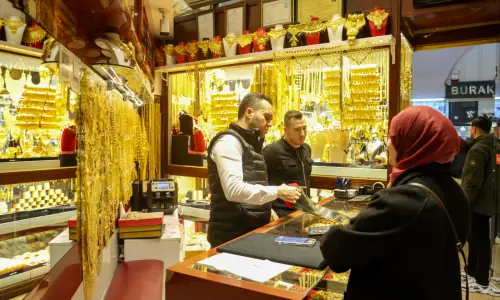FEW events in the history of modern India have been as polarising as the 1992 destruction of the Babri Masjid in the Hindu holy city of Ayodhya.
In an episode of unabashed ugliness, a frenzied mob of thousands of Hindu extremists — including some of the leading lights of the BJP, which now rules India — stormed the 16th-century mosque and reduced it to rubble, guided by the belief that the spot where the masjid was built was Ram Janmabhoomi, the place where Hindus believe the deity was born.
Communal riots followed the desecration of the mosque in many parts of India, while the demolition was condemned by major Muslim states.
This event has poisoned Hindu-Muslim relations in India since, and has served as a battle cry for the Hindu hard right, that has now captured state power in New Delhi.
On Saturday, the Indian Supreme Court ruled that a temple would be built on the site of the razed mosque. While the apex court did say that the demolition was illegal, by allowing the building of the temple, it has, through this verdict, indirectly supported the vandalism by the mobs. It is also a tad ironic that the decision came on the day when the Kartarpur Corridor was opened for Sikh pilgrims, indicating Pakistan’s intentions to facilitate other religious communities.
Perhaps it would have been better had the court given the site to neither side, considering the sensitivity of the matter and its impact on communal relations in India. Moreover, on matters of faith and devotion, it is best if state institutions maintain a non-sectarian outlook to ensure justice for all citizens. Looking back at the events since 1992, it can be argued that the destruction of the mosque marked the beginning of the end of the Nehruvian ideal of a secular India, and the triumphal, raucous arrival of the Sangh Parivar on the national stage. Some of the most fanatical fringes of the Hindu hard right participated in the orgy of violence in Ayodhya on that December day; today, many of these elements are in positions of great power in India.
Undoubtedly, the verdict will embolden the foot soldiers of Hindutva and send a message to India’s minorities — particularly its Muslims — that religious triumphalism and violence tactics by the majority are condoned in modern India. The Indian establishment never ceases to boast about the claim that it is the world’s ‘largest democracy’. However, the post-Babri Masjid trajectory of the country has been anything but democratic, and especially with the election of Narendra Modi, it is clear that the national narrative is being shaped by Savarkar and Golwalkar rather than Nehru and Gandhi. Now, it is for the Indian people to decide whether they wish to adopt a democratic course, or build a Hindu rashtra where minorities are either hounded out, or forced to live as second-class citizens.
Published in Dawn, November 10th, 2019































